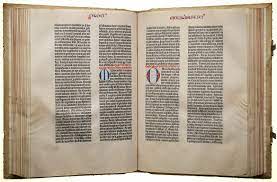
THE POPULAR ENCYCLOPEDIA OF BIBLE PROPHECY
THRONE OF DAVID
The “Throne of David” in the Bible refers to the dynasty and royal line established by King David and his descendants, which God promised would be eternal. It symbolizes the divine covenant and messianic hope within the scriptures. This throne is not just a physical seat of power but represents the enduring rule and authority of David’s lineage.
Here’s a more detailed explanation:
-
Divine Covenant:
God made a covenant with David, promising that his descendants would always sit on the throne of Israel. This covenant is often referred to as the “covenant of salt”.
-
Messianic Hope:
The prophecies about the throne of David are closely linked to the coming Messiah, who is identified as the promised Son of David. Jesus, in the New Testament, is presented as inheriting the right to David’s throne and reigning forever.
online bible dictionary throne of david:
The “Throne of David” in biblical dictionaries refers to the concept of God’s promise to David that his lineage and kingdom would endure forever, and that his descendants would inherit his throne.
Here’s a breakdown of the key aspects:
-
Davidic Covenant: The basis of the “Throne of David” is the Davidic Covenant in 2 Samuel 7:12-16. In this covenant, God promised David an enduring lineage and kingdom.
-
Significance: This covenant signifies rightful kingship and authority and is important in biblical history and the expectation of divine kingship. It highlights God’s faithfulness and His plan for redemption.
-
Messianic Fulfillment: The New Testament identifies Jesus Christ as the fulfillment of the promise of the Throne of David. The angel Gabriel announced that Jesus would receive “the throne of His father David” and reign over a kingdom without end (Luke 1:32-33).
-
Jesus as the Eternal King: As a descendant of David, Jesus embodies the promised eternal kingship. He establishes a spiritual kingdom and is recognized as the ultimate King.
The “Throne of David” is a significant theme in biblical theology, representing God’s enduring promise to David and the hope of an eternal kingdom through Jesus Christ.
-
Symbolism:
The throne represents not only earthly power but also God’s sovereign rule and the ultimate fulfillment of his promises.
-
2 Samuel 7:11-16, Psalm 89, and Jeremiah 33:17-26 all speak of this enduring dynasty.
-
New Testament Significance:
Luke 1:32-33 connects Jesus with the throne of David, and Revelation 22:16 identifies Jesus as both the root and offspring of David.
-
Jerusalem:
The throne of David is also closely associated with the city of Jerusalem, which was made the capital of Israel under David’s rule.